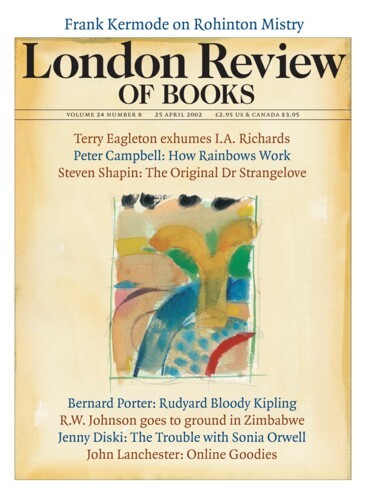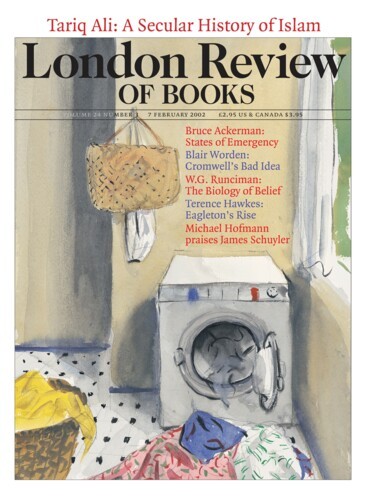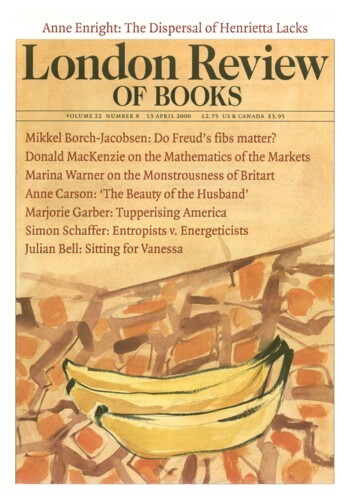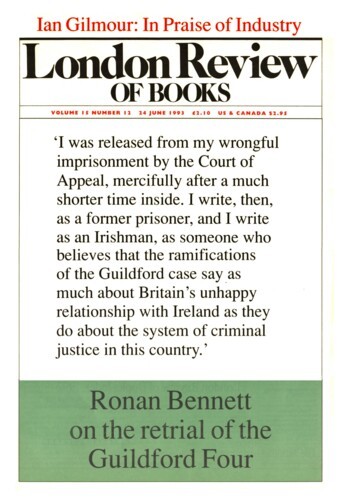Poem: ‘Ode to the Sublime by Monica Vitti’
Anne Carson, 25 April 2002
I want everything. Everything is a naked thought that strikes.
A foghorn sounding through fog makes the fog seem to be everything. Quail eggs eaten from the hand in fog make everything aphrodisiac.
My husband shrugs when I say so, my husband shrugs at everything. The lakes where his factory has poisoned everything are as beautiful as Brueghel.
I keep my shop, in order that I may sell...




